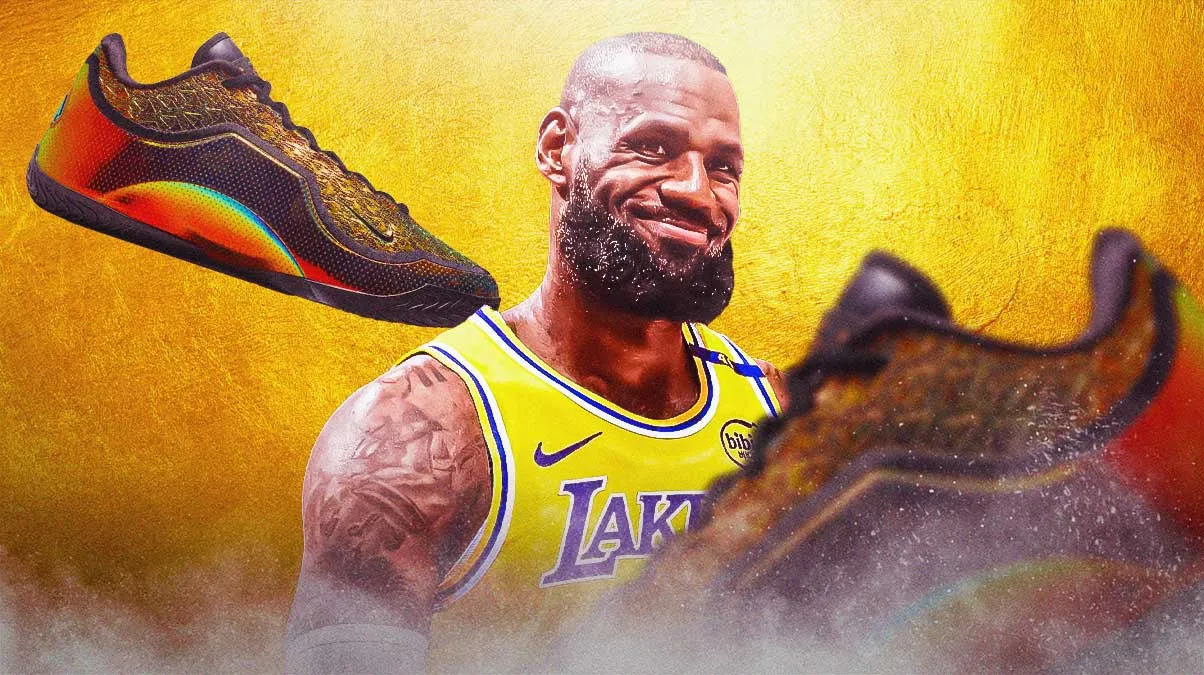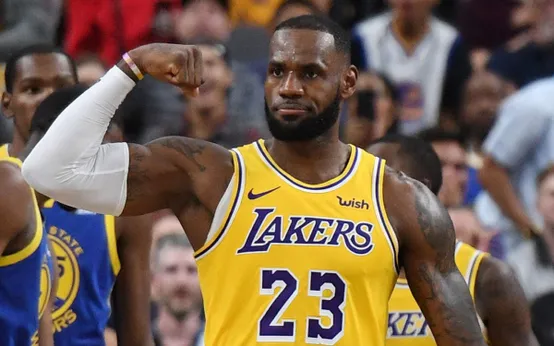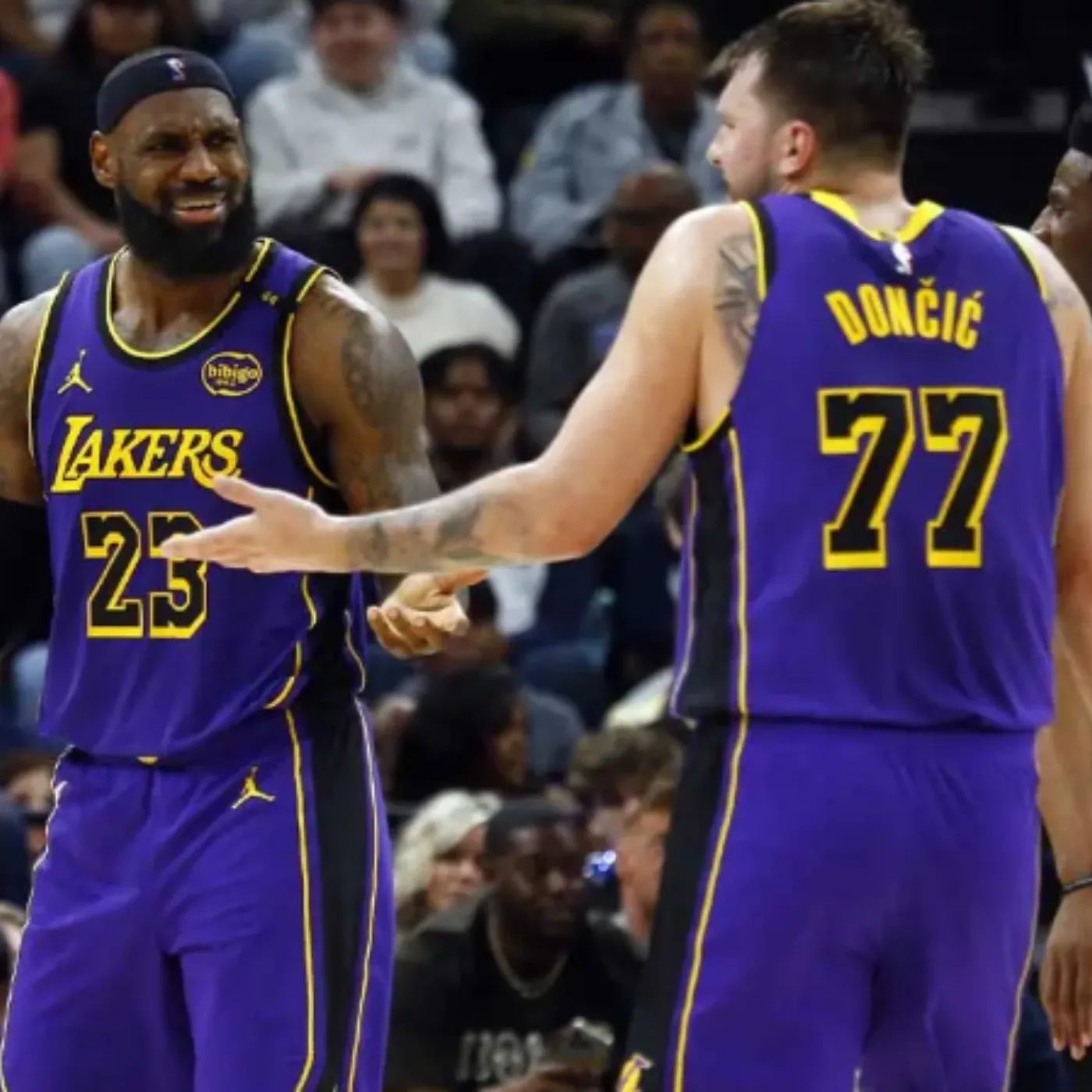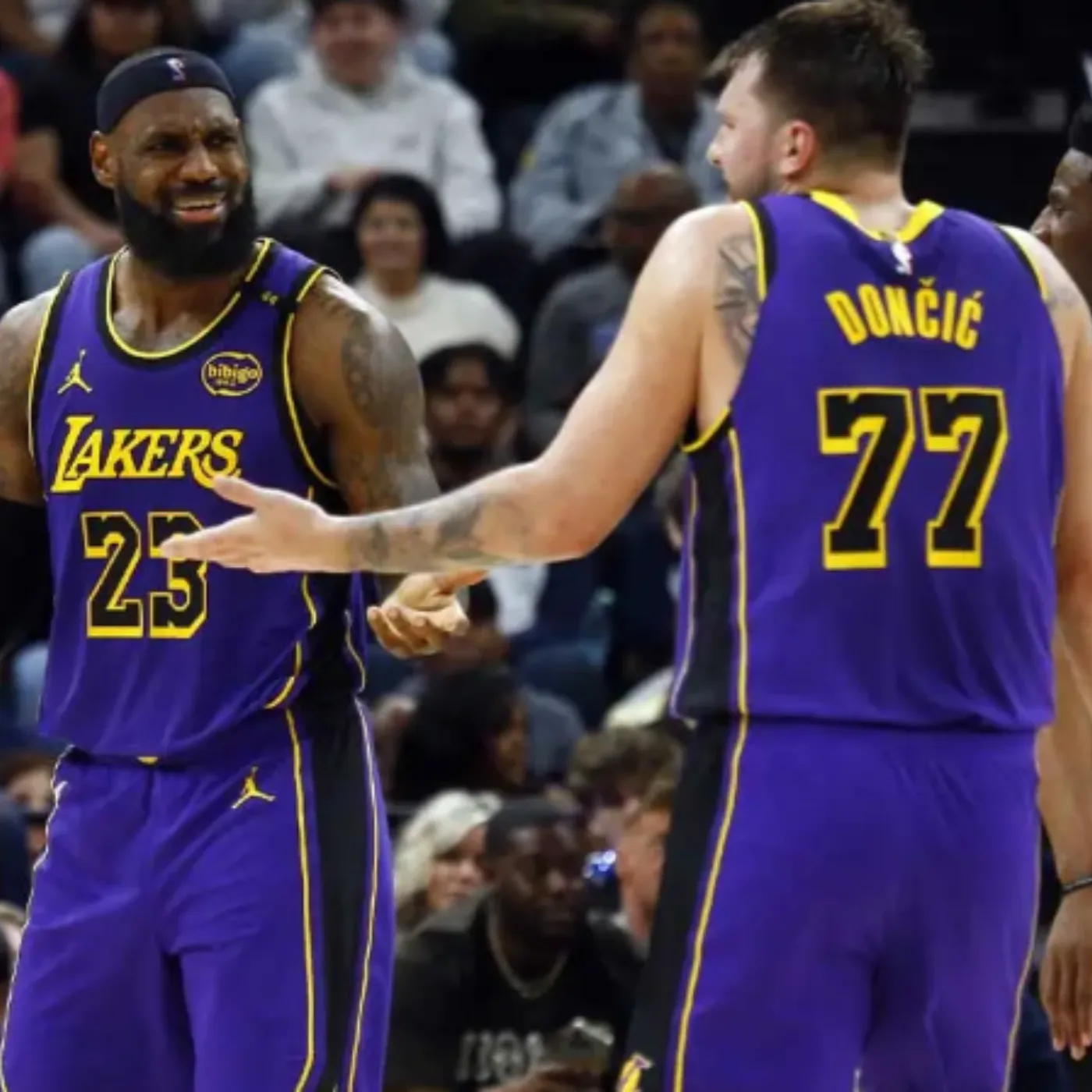

LeBron James Criticized by Fans for ‘Arrogant’ Quotes in Latest Ad Event – What Did He Really Say?
Few athletes in modern sports have balanced greatness and criticism quite like LeBron James. Widely regarded as one of the greatest basketball players in history, the Los Angeles Lakers star has collected four NBA championships, two Olympic gold medals, and countless individual awards. Yet, despite his incredible résumé, LeBron has never been free from public scrutiny.
The latest controversy stems not from his performance on the court but from his role as the face of Nike’s new campaign promoting the LeBron 23 sneakers. A line from the commercial—“Every opponent has been defeated. Every idol has been destroyed”—ignited a storm of backlash across social media. Fans and critics alike accused LeBron of arrogance, delusion, and a lack of self-awareness, given his well-documented Finals record.
This article explores what happened, why the reaction was so strong, how the media amplified the outrage, and what this means for LeBron’s legacy moving forward.
LeBron James and His Partnership with Nike
Before diving into the controversy, it’s important to understand the relationship between LeBron James and Nike.
-
In 2003, straight out of high school, LeBron signed a groundbreaking $90 million deal with Nike, even before playing a single NBA game.
-
Over the years, his line of signature sneakers has become one of Nike’s most successful franchises, competing with Michael Jordan’s Air Jordans in popularity and revenue.
-
In 2015, Nike doubled down on LeBron’s star power with a lifetime contract, rumored to be worth over $1 billion.
Nike doesn’t just market LeBron as a player—they market him as a global icon, a cultural force, and a symbol of dominance. That framing often pushes the boundaries between confidence and arrogance, a line the latest campaign may have crossed.

The Controversial Quote: “Every Idol Has Been Destroyed”
In the latest Nike ad, released to promote the Nike LeBron 23, LeBron delivers a dramatic narration:
“Every opponent has been defeated. Every idol has been destroyed.”
While intended to project dominance, power, and unshakable confidence, the line immediately struck many fans as contradictory to LeBron’s actual career record. Critics flooded platforms like X (formerly Twitter), YouTube, and Reddit, pointing out that:
-
LeBron holds a 4–6 record in NBA Finals, which hardly supports the notion that he has “defeated every opponent.”
-
Some of the most memorable Finals losses in history—such as being upset by the Dallas Mavericks in 2011 or facing back-to-back defeats by Stephen Curry’s Golden State Warriors—remain fresh in the collective memory of basketball fans.
-
The phrase “every idol has been destroyed” seemed particularly tone-deaf, as many still view Michael Jordan, Kobe Bryant, and even current rival Stephen Curry as idols who continue to loom over LeBron in the greatest-of-all-time (GOAT) debate.
Backlash from Fans: The Internet Reacts
The reaction was swift and brutal:
-
Fans accused LeBron of being out of touch with reality, citing his 6 Finals losses.
-
Some mocked the line by posting memes featuring images of Dirk Nowitzki, Tim Duncan, and Stephen Curry—all of whom defeated LeBron in high-stakes matchups.
-
Others labeled the ad “cringe,” “ego-driven,” and “manipulative marketing.”
On X, one viral post read:
“LeBron said he destroyed every idol… but didn’t Dirk and Steph destroy him in the Finals? Nike must’ve forgotten those tapes.”
On YouTube, the comments section of the ad was flooded with similar skepticism, with many fans asking whether Nike’s marketing team was “writing fantasy scripts instead of sports history.”
Media Reactions: From Praise to Harsh Criticism
The media quickly picked up on the controversy. Different outlets framed it in different ways:
-
News.com.au called the commercial “delusional,” saying Nike and LeBron were rewriting history to fit a false narrative.
-
NBAAnalysis.net published an article emphasizing how “NBA fans slammed LeBron” and accused the campaign of being tone-deaf.
-
American sports talk shows turned the ad into a debate topic, with commentators questioning whether LeBron himself believed the words or if it was purely Nike’s spin.
Interestingly, some outlets defended the campaign as classic “controversy marketing”—a deliberate attempt to generate buzz by provoking debate, even if it meant angering some fans. After all, viral outrage often translates into more attention and higher sales.
A History of Controversy: LeBron’s Image Problem
This is far from the first time LeBron James has been at the center of a cultural firestorm. His career is filled with moments where public opinion split sharply:
-
The Decision (2010): When LeBron announced his move to the Miami Heat on live television, fans accused him of arrogance and betrayal.
-
Superteam Criticism: Many argue his championships in Miami and Cleveland were the result of teaming up with other superstars, not single-handed dominance.
-
Political Statements: LeBron has been vocal on social and political issues, earning both praise and backlash depending on the audience.
-
The GOAT Debate: His pursuit of Michael Jordan’s legacy has always been a lightning rod for debate, with fans dissecting every Finals win and loss.
The Nike ad controversy fits neatly into this long history of LeBron being both celebrated and criticized simultaneously.
Why the Line Backfired: A Deeper Analysis
So why exactly did the line—“Every opponent has been defeated. Every idol has been destroyed”—spark such intense outrage?
Mismatch with Reality
Fans value authenticity. While LeBron is undoubtedly one of the greatest players ever, his Finals record and well-known struggles against certain opponents make the statement ring hollow.
Touching a Sensitive Nerve
The phrase “idol destroyed” cuts deep because of the ongoing GOAT debate. For Jordan and Kobe fans, this felt like a direct insult to their legends.
LeBron’s Reputation for Self-Promotion
LeBron has often been accused of chasing narratives—such as calling himself the GOAT after winning the 2016 Finals. This ad felt like another example of that tendency.
Nike’s Marketing Strategy
Nike thrives on bold, provocative messaging. However, in this case, they may have underestimated how quickly fans would push back against a claim that clashed with history.
Controversy Marketing: A Double-Edged Sword
It’s worth noting that the backlash may not be entirely bad for Nike—or for LeBron. In fact, this may have been part of the strategy.
Controversy marketing works on the principle that all publicity is good publicity. By sparking heated debate, Nike ensured that the LeBron 23 launch became a viral topic, dominating headlines and social feeds.
However, the risk is that instead of elevating LeBron’s brand, it further entrenches the narrative that he is arrogant and insecure about his legacy. This is especially dangerous in the twilight of his career, when his reputation is shifting from current dominance to historical assessment.
Global vs. Local Reactions: A Cross-Cultural Look
Interestingly, reactions varied between international media and Vietnamese media.
-
International media emphasized the arrogance and disconnect from reality, with terms like “tone-deaf” and “ego-driven.”
-
Vietnamese outlets like Webthethao highlighted LeBron’s status as “the most controversial player in basketball,” framing the story as part of his ongoing battle with public perception.
This contrast shows how global icons like LeBron are interpreted differently depending on cultural context. While Western media focused on the accuracy of the claim, Vietnamese coverage emphasized the spectacle of controversy.
LeBron’s Legacy: What This Means for the GOAT Debate

Ultimately, the ad reignites the age-old debate: Is LeBron James the greatest of all time?
-
Pro-LeBron fans argue that his longevity, versatility, and ability to win championships with multiple franchises prove his greatness.
-
Jordan loyalists point to MJ’s perfect 6–0 Finals record and unmatched cultural impact.
-
Kobe fans emphasize Mamba Mentality and Kobe’s five rings as evidence of his superiority.
The Nike ad, instead of settling the debate, has only poured fuel on the fire. By claiming “every idol has been destroyed,” it almost dares fans of other legends to push back even harder.
Lessons for Athletes and Brands
The controversy around LeBron’s Nike ad carries broader lessons for both athletes and corporations:
-
Authenticity matters. Fans can forgive losses but not arrogance that ignores them.
-
Narratives must align with history. Exaggeration can work in marketing, but rewriting history risks alienating loyal fans.
-
Controversy can sell—but at a cost. Brands must weigh whether short-term buzz is worth long-term damage to credibility.
-
Legacy is fragile. For athletes near retirement, every public statement contributes to how future generations will remember them.
Conclusion: The Fine Line Between Confidence and Arrogance
LeBron James has always walked the line between confidence and arrogance, and Nike has never been afraid to push that narrative. But this time, the campaign may have crossed into uncomfortable territory, sparking more backlash than inspiration.
-
Fans saw the line as a false rewriting of history.
-
Media outlets criticized it as tone-deaf and ego-driven.
-
Nike may still benefit from the viral attention, but LeBron’s personal legacy takes another hit in the process.
In the end, LeBron James remains what he has always been: a polarizing figure who inspires as much criticism as admiration. And perhaps that’s exactly what keeps his name in the headlines, long after the final buzzer sounds.


















